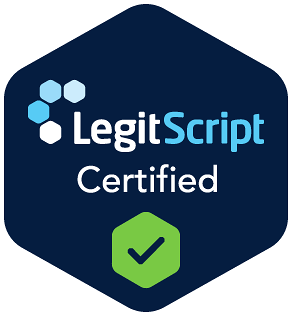Prescription drug addiction continues to rise in San Diego, impacting individuals across all age groups, professions, and backgrounds. What often begins as a legitimate prescription for pain, anxiety, or sleep disorders can evolve into a dangerous cycle of misuse and dependency. Prescription drug addiction treatment is the only way out for many people who struggle with substances. Medications like prescription opioids, while effective when used correctly, carry a high risk of addiction. This can happen when taken in larger doses, more frequently than prescribed, or without medical supervision.

Comprehensive treatment often includes:
- Individual therapy and group therapy to explore root causes and build coping skills
- Holistic therapies such as mindfulness, yoga, and nutrition support
- Dual diagnosis treatment for co-occurring mental health conditions
With a strong emphasis on personalized care, these services empower individuals to reclaim their health, rebuild relationships, and create a sustainable path to recovery. At Amity San Diego, we work to provide resources and programs that support lasting recovery and wellness.
How is it Possible to Become Addicted to Prescription Drugs?
Psychological dependence may also develop, as individuals begin to rely on the drug to cope with stress or emotional discomfort. Changes in brain chemistry and behavior can quickly escalate into addiction. This can happen regardless of the person’s personal desire, and even when the original intent was therapeutic.
Improper use of prescription drugs includes taking medication without a prescription, using higher doses than prescribed, or altering the method of intake (e.g., crushing pills to snort or inject). Such misuse can rapidly lead to dependence and addiction, especially when driven by a desire for pain relief, to alleviate emotional distress, or a strong recreational experience. Without proper oversight from a medical professional, the risk of overdose, severe side effects, and long-term health consequences significantly increases. This makes early intervention for perceived prescription drug addiction important.
Opioids are commonly prescribed for pain relief. But their high potential for physical dependence and euphoria makes them a leading cause of prescription drug addiction. Medications like oxycodone, hydrocodone, and morphine (when misused) can slow breathing, impair cognition, and trigger withdrawal symptoms. Prolonged use often alters brain chemistry, reinforcing the need for increasing dosages.
Benzodiazepines (benzos), such as Xanax, Ativan, and Valium, are prescribed to manage anxiety, insomnia, or seizures. Though effective short-term, long-term or improper use can lead to tolerance, dependence, and withdrawal symptoms like agitation, tremors, or even seizures. Because benzos affect the brain’s GABA receptors, abrupt cessation can be dangerous. Addiction treatment often involves a gradual taper under medical supervision, along with therapy to address the psychological aspects of dependence and develop healthier coping mechanisms.
Amphetamines, like Adderall or Ritalin, are commonly prescribed to treat attention-deficit hyperactivity disorder (ADHD) and narcolepsy. These stimulants enhance focus and energy but can be misused for academic performance, weight loss, or recreational highs. Non-medical use may cause anxiety, heart problems, or psychosis. Over time, misuse can disrupt dopamine regulation, leading to compulsive behavior and addiction. Treatment for addiction may include behavioral therapies and support to manage withdrawal symptoms, rebuild brain function, and reinforce healthier patterns of focus and motivation.
Signs of Prescription Drug Addiction
Common signs of addiction to prescription drugs include:
- Physical symptoms: Drowsiness, slurred speech, poor coordination, nausea, or changes in appetite and weight.
- Emotional changes: Mood swings, irritability, anxiety, depression, or lack of motivation.
- Behavioral shifts: Doctor shopping, forging prescriptions, taking higher doses than prescribed, or using medication for non-medical reasons.
- Social withdrawal: Avoiding family and friends, neglecting responsibilities, or losing interest in hobbies.
- Cognitive issues: Confusion, memory problems, or impaired judgment.

Short- and Long-Term Consequences of Prescription Drug Addiction
Chronic misuse of prescription drugs can lead to organ damage, cognitive decline, and mental health disorders such as depression or anxiety. Social isolation, job loss, and financial instability are also common. In some cases, long-term addiction may result in overdose or death. Early intervention and comprehensive treatment are essential to prevent these outcomes and support lasting recovery.
Here’s a chart summarizing the key short- and long-term consequences:
| Short-Term Consequences | Long-Term Consequences |
| ● Drowsiness and confusion | ● Liver, kidney, or heart damage |
| ● Impaired coordination | ● Cognitive decline and memory loss |
| ● Mood swings and irritability | ● Chronic depression or anxiety |
| ● Risky behavior and accidents | ● Social isolation and relationship loss |
| ● Nausea or appetite changes | ● Job loss and financial instability |
Treatment for Prescription Drug Addiction
Behavioral therapies such as cognitive-behavioral therapy (CBT), contingency management, and motivational interviewing are commonly used to change harmful thought patterns and behaviors.
Key components of treatment for prescription drugs include:
- Behavioral therapies to address psychological triggers
- Dual diagnosis care for co-occurring mental health disorders
- Individual, group, and family therapy
- Aftercare planning and relapse prevention strategies
Long-term recovery is supported through ongoing therapy, peer support, and lifestyle changes that promote health and stability.
For opioid addiction, medications like buprenorphine, methadone, or naltrexone may be prescribed to reduce cravings and prevent relapse. Treatment plans are most effective when tailored to the individual’s drug use history, mental health status, and personal goals.
Insurance for Prescription Drug Addiction
Coverage typically includes a range of services, from inpatient rehab to outpatient therapy. However, the extent of coverage can vary based on the insurance provider, plan type, and whether the treatment facility is in-network. Pre-authorization, deductibles, and copayments may also apply.
Understanding your specific benefits is essential to avoid unexpected costs and ensure access to appropriate care. Verifying benefits with your provider or treatment center can help streamline access to care. Reach out to us for help with insurance verification for addiction and dual diagnosis treatment.
Heal From Prescription Drug Addiction at Amity San Diego
At Amity, we understand the complexities of prescription drug addiction no matter the substance at the heart of it all. Through personalized care, we empower clients with the tools and support they need to rebuild their lives.
Key features of treatment at Amity San Diego include:
- Outpatient programs built with flexibility and structure
- Individual and group therapy to help individuals build skils
- Holistic approaches to treatment to support mind-body healing
- Dual diagnosis care for co-occurring mental health conditions
If you’re ready to speak with someone directly, contact us today. Whether you have questions about treatment options, insurance coverage, or the admissions process, we’re here to listen and help.
Verify Your Insurance
We understand that navigating the financial aspects of treatment can be challenging. Amity San Diego is here to help. Our team works with many insurance providers to make treatment as accessible as possible. Click below to verify your insurance and learn more about your coverage options. Our admissions team will guide you through the process and answer any questions you may have.








